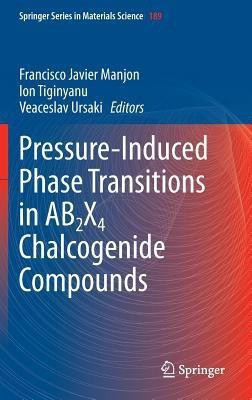Pressure-Induced Phase Transitions in AB2X4 Chalcogenide Compounds(English, Hardcover, unknown)
Quick Overview
Product Price Comparison
This book on pressure-induced phase transitions in AB2X4 chalcogenide compounds deals with one important AmBnXp material. The interest in these materials is caused by their properties. The results are discussed for three main groups of structural families: cubic-spinel structures, defective tetragonal structures, and other structures like layered and wurtzite-type modifications. A systematic analysis of the behavior of cubic (spinel), tetragonal (defect chalcopyrites and stannites) and other crystal modifications of AB2X4 compounds under hydrostatic pressure is performed. The behavior of AIIAl2S4, AIIGa2S4, AIIAl2Se4 and AIIGa2Se4 compounds with defective tetragonal structures, compounds with layered and wurtzite structures under hydrostatic pressure and the pressure dependence of the band gap, lattice parameters, interatomic distances, vibrational modes and pressure-induced phase transitions is discussed. Many of these compounds, except oxide spinels, undergo a pressure-induced phase transition towards the rocksalt-type structure. The phase transition is preceded by disorder in the cation sublattice. The dependence of the transition pressure to the rocksalt-type structure as a function of the compound ionicity and the size criterion is analyzed. At high pressures, all ordered-vacancy compounds are found to exhibit a band anticrossing between several conduction bands that leads to a strong decrease of its pressure coefficient and consequently to a strong non-linear pressure dependence of the direct bandgap energy. Theoretical studies of phase transitions in several ordered-vacancy compounds reveal that the existence of ordered vacancies alter the cation-anion bond distances and their compressibilities. The book is written for students, Ph D. students and specialists in materials science, phase transitions and new materials.


